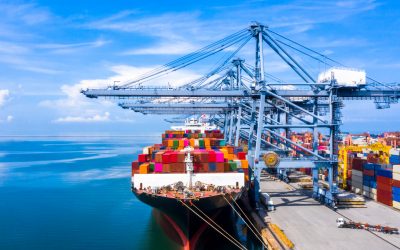Sourcing is the latest buzzword in the manufacturing and the supply chain. As the business environment is becoming more and more competitive, companies are trying to maximize their gains by sourcing raw materials or finalized products from cheaper destinations. As per the findings of Harvard Business Review and other research publications, certain countries have an inherent advantage in succeeding in particular industries. This is why more and more cost and quality conscious businesses all over the world are turning to overseas sourcing.
However, international sourcing is also a risky maneuver as a lot of your money is at stake. You are not physically present at the location and your money is in a foreign land so you do not have full control over the process. At BlinkGlobal, we help our clients get the best solutions when sourcing from overseas. In this article, our experts share 5 mistakes that you must avoid when sourcing from overseas.
1. Choosing Vendors Without Research
Right vendor selection is the most crucial decision that you need to make when sourcing from overseas. The most important factor to consider when selecting suppliers is to first make sure that they are able to provide what your business actually needs, rather than randomly selecting suppliers who just want to sell.
A good way to get a reliable supplier is by seeking recommendations from your business acquaintances or you can also look for online reviews about different suppliers. Suppliers also have certain rules and requirements like minimum quantity and advance payment. Be an informed consumer and ask important questions like shipping time frame and shipping charges as well as legal requirements such as taxes and duties.
2. Paying Everything Upfront
Since many suppliers offer discounts on paying the total amount upfront, many buyers fall for the temptation which can be risky. If you have a long-term relationship with a supplier, getting a discount by paying everything makes sense but if you are dealing with a certain supplier for the first time, it’s better to obtain credit terms from the supplier. It will encourage the supplier to ensure quality and make the deliveries on time. While developing the contract, clearly mention the specifications and expectations.
3. No Information Security Program
If you have to pass data and sensitive information to your vendor, it is important to make sure that the vendor has an information security program in place. Moreover, the program should highlight its capacity and strengths to protect sensitive information. The program must include administrative safeguards such as strong password requirements as well as physical safeguards such as Account lockouts.
4. Not Asking for Product Samples
Don’t hesitate, ask for product samples. Product samples depict the supplier’s capacity to cater to your quality requirements. Most of the vendors will agree to this and will let you inspect the quality of the product. This will also help you analyze if the product can meet your customers’ expectations.
5. Choosing Sourcing Agent over Sourcing Company
Sourcing agents or sourcing companies deal and communicate with suppliers on your behalf. They are supposed to ensure transparency and make decisions that are right for you. Sourcing agents are essentially freelancers with no reputation to uphold. Sourcing agents are present in the country where you want to source from, meaning you can meet them virtually not physically.
Sourcing companies have a vast network and global diaspora of agents with specialized backgrounds in various industries and extensive experience in global trade. As opposed to sourcing agents, sourcing companies have a reputation to uphold.
Reliable sourcing companies such as Blink Global, offer clients a fair comparison of different vendors based on their terms of production, quality, and pricing!


